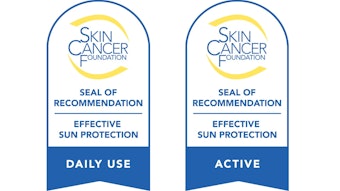
Ashland is committing to science-based targets and has joined the United Nations (UN) Global Compact initiative, furthering the company’s environmental, social and governance agenda.
Related: Ashland Announces Conservation Actions at Delaware HQ
The UN Global Compact has been deemed the world’s largest corporate sustainability initiative. It aims to accelerate business action to achieve sustainable development goals and more ambitious climate targets. By joining this initiative, Ashland has committed to the following.
Science-based Emissions Reduction Targets
-
Making the UN Global Compact and its principles part of the company’s business strategy;
-
Engaging in collaborative projects that advance the goals of the UN, particularly the Sustainable Development Goals; and
-
Aligning operations with the aim of the Paris Climate Accord to limit a global temperature rise to 1.5°C (above pre-industrial levels) by setting science-based emissions reduction targets across all relevant scopes.
Sourcing
-
Pursing Roundtable for Sustainable Palm Oil (RSPO) supply chain certification and Forest Stewardship Council Chain of Custody Certification (FSC);
-
Establishing a program for responsible guar sourcing;
-
Partnering with EcoVadis for third party supplier self-assessment verification;
-
Requiring suppliers to sign a Supplier Code of Conduct that holds suppliers to the same standards as Ashland; and
-
Continuing to partner with farmers in Mexico to ensure Ashland’s aloe is harvested in an ecologically sustainable way and to maintain Fair for Life certification.
Transparency
-
Providing reporting in line with the Global Reporting Initiative (GRI) and Sustainable Accounting Standards Board (SASB) standards for the chemical industry; this alignment allows Ashland to share the most important material issues with stakeholders and reduces environmental impact.
Operations
- Completing Life Cycle Assessments for major product lines beginning with the personal care and household portfolio; additionally, individual facilities have goals for the reduction of energy, hazardous waste and water.
Ashland also developed business-specific sustainability guides for customers to quickly identify sustainable products for their applications. The company's personal care business focuses on natural, nature-derived, nature-identical and biodegradable products.
Furthermore, the company is expanding its COSMOS-validated product portfolio and innovating for vegan products.
For life sciences, performance adhesives and specialty additives, the sustainability focus is dependent on the industry, customers’ needs and the end use of the product. Recyclability, biodegradability and the circular economy are all driving factors.
Guillermo Novo, chairman and chief operating officer of Ashland, said, “Science-based targets provide a clearly-defined path to reduce greenhouse gas emissions. We support public accountability and transparency, and we commit to reporting our progress. These initiatives reinforce Ashland’s core values and strengthen our environment, social and governance (ESG) agenda. They provide a platform for sustainable innovations that will foster top-line growth in the transition to the low-carbon economy.”









